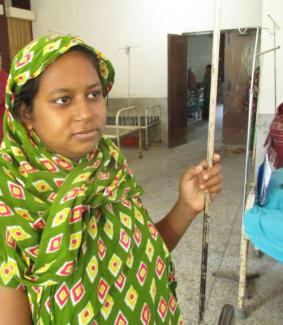Global affairs
Tangible advice

The G20 has broadened its agenda beyond conventional economic and fiscal issues. The group of the 19 most important economies plus the European Union is now also dealing with issues such as employment, climate protection and international development. The current German presidency, moreover, has put migration, flight, health and cooperation with Africa on the agenda as well.
The summit in Hamburg in July will be challenging. Huge protest rallies are expected. Moreover, Germany’s Federal Government will have to manage the negotiations among the heads of state and government diligently. Controversies are likely, not least because US President Donald Trump has a track record of challenging principles that used to be shared by all G20 members, including the promotion of free trade and climate protection. Controversy might thwart the group’s effectiveness and thus undermine its legitimacy.
Think tanks based in the G20 member countries must rise to the challenges too. It is their job to make proposals concerning the solution of global problems. For this purpose, they are increasingly networking, cooperating and sharing insights from various countries and scientific disciplines. Every year, a different G20 government assumes the presidency. Accordingly, the scholars’ networks must respond to changing policy priorities whilst ensuring continuity at the same time. Moreover, the think tanks are important players in domestic debates and can contribute to disseminating ideas in their home countries.
Think tanks from G20 countries have been cooperating since 2012. The group is called Think20 (T20) and is designed to draft policies. In the context of the German G20 presidency, the T20 has been reorganised. The focus was on boosting the networks of the institutions involved, improving their systematic exchange with the G20 and ensuring continuity.
As an innovation, the T20 Africa Standing Group was established. It links African think tanks to peers in the G20. The T20 Africa Standing Group will meet regularly and advise the G20 in regard to African affairs. The involvement of researchers from emerging markets was boosted thanks to funding from Germany’s Federal Ministry for Economic Cooperation and Development (BMZ). The German Development Institute / Deutsches Institut für Entwicklungspolitik (DIE) and the Kiel Institute for the World Economy (IfW) coordinated the process.
New T20 architecture
In 2016/17, T20 activity was geared to creating topical task forces in order to draft evidence-based policy proposals. The task forces not only tackle conventional questions of economics and fiscal policy, but also consider achieving the Sustainable Development Goals, inequality, sustainable development in Africa and climate change. As the network is independent, it is free to deal with policy issues of great future relevance even though consensus on them may not yet seem feasible in the G20 context.
The task forces produce policy briefs in which teams of scholars make tangible proposals. More than 60 policy briefs have been prepared ahead of the Hamburg summit so far. They were submitted to the G20’s working groups and discussed with policymakers.
The policy briefs are publicly available on the G20 Insights platform. This platform is meant to become a lasting node which will serve the T20 community for many more G20 presidencies after the current German one. The task forces too are designed to continue working. They are set to become a network of expertise on global challenges and national policy options.
Links
G20 Insights Platform:
http://www.g20-insights.org/
German T20 coordination:
http://www.t20germany.org/













